UNDP backs Mozambique’s efforts for reconciliation and social cohesion through national dialogue
“People displaced by terrorism had no formal command to return to their homes”
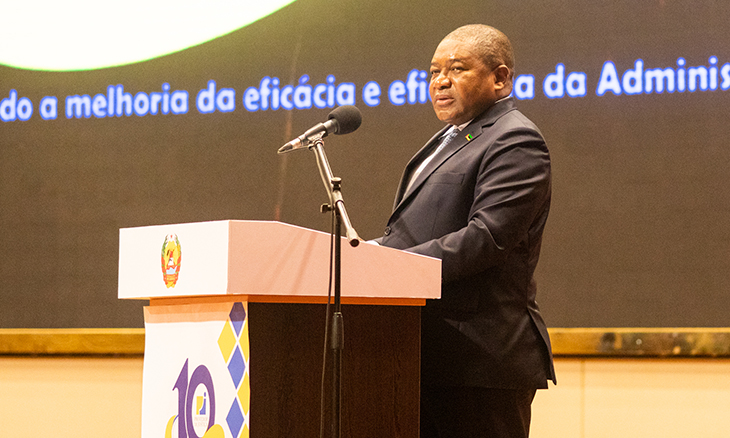
Image: O País
Those displaced by terrorism were starting to return to their areas of origin, although attacks once again shook Cabo Delgado almost a week ago. Yesterday, the President of the Republic went public to ‘separate the waters’, saying that the displaced were not formally allowed to return to their areas of origin, and that his executive was aware that it should not yet claim victory.
Filipe Nyusi this Thursday addressed the opening of the international conference on the 10 years of the existence of the Ombudsman in the country.
The head of state addressed terrorism in Cabo Delgado, in a context in which the displaced were starting to return to their homes, following the advances announced in the fight against the insurgents.
“The government is aware that there are still terrorists in Mozambique, so this should not be a reason for debate. They are prevalent all over the world,” said Nyusi, adding that “there being improvements does not mean that it is over. But we say that the fight continues to bring encouraging results”.
The president said that people were starting to return to their areas of origin, but “there was no formal command to return to the areas”. It was the victims themselves who said they did not need permission to return to their homes, just as they did not wait for a command to flee when the terrorist attacks intensified, Nyusi stressed.
“My government’s responsibility is to continue to maintain security in these areas,” he clarified.
New attacks last week and this, characterised by beheadings and kidnappings, had called into question security in areas once devastated by terrorism.
“No one is claiming victory,” the Mozambican head of state said.
Filipe Nyusi is aware of the possibility of human rights violations as people return to Cabo Delgado, and challenged the Ombudsman to monitor the process.
“Your services can be requested to assist victims of this disease, which today afflicts Mozambicans, and is a concern. Therefore, they need to study new ways on how the provider can make its contribution to the mitigation [of possible violations of victims’ rights],” Nyusi said.
In response, Ombudsman Isaque Chande, outlined the challenges that people face in guaranteeing their rights, based on the complaints presented.
“The excessive delay in the issuance of documents, such as DUAT (Right of Land Use) and construction permits, also complaints related to retirement pensions, complaints about the non-payment of remunerations and subsidies and complaints about the services provided by some public companies, among other challenges.”
The Ombudsman did however acknowledge that there had been advances in the conditions created by the state for the execution of its [the Ombudsman’s] work, drawing attention to the fact that it was now working out of its own and not leased premises.
South African Ombudsman Busisiwe Mkhwebane, who was invited to participate in the conference, stressed that ombudsmen played a fundamental role in guaranteeing citizens’ rights, particularly in countries with conflicts, such as Mozambique.
The office of the Ombudsman has existed in Mozambique since May, 2012. Its role is to guarantee citizens’ rights, legality and justice, although it has no sanctioning power. In practice, it is also a means for people to complain about cases of perceived unconstitutionality to the Constitutional Council.
Guaranteeing human rights is everyone’s duty
Speaking at the international conference on the 10th anniversary of the Ombudsman in the country, the Parliamentary Speaker Esperança Bias said that guaranteeing the human rights of victims of terrorism was everyone’s responsibility.
“The defence of human rights is not the responsibility of the Ombudsman alone; it is not the responsibility of a single body, it is the responsibility of all of us. I referred to Cabo Delgado, it is a very sad situation in which several people died or were left with the after-effects,” Bias admitted.
The president of the National Human Rights Commission says that the major failure was the inability to contain the killings in Cabo Delgado in a timely manner.
For the president of the Parliamentary Commission on International Relations, Cooperation and Communities, it was necessary to take into account in particular the rights of women and involve this group in decisions with a view to overcoming various challenges.
The international conference on the occasion of the Ombudsman’s 10th anniversary reflected on various topics, with the highlight on global challenges to human rights defence institutions and the inclusion of women in decision-making.
By José João


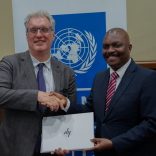
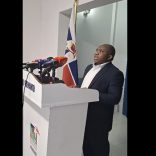

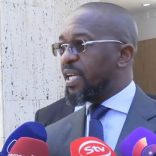
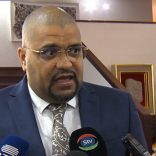
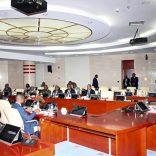




Leave a Reply
Be the First to Comment!
You must be logged in to post a comment.
You must be logged in to post a comment.